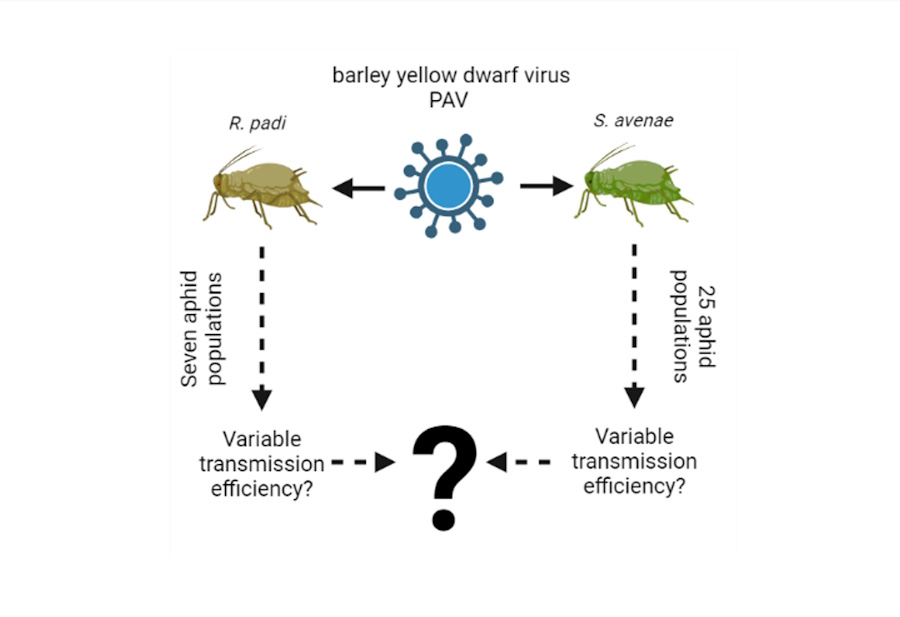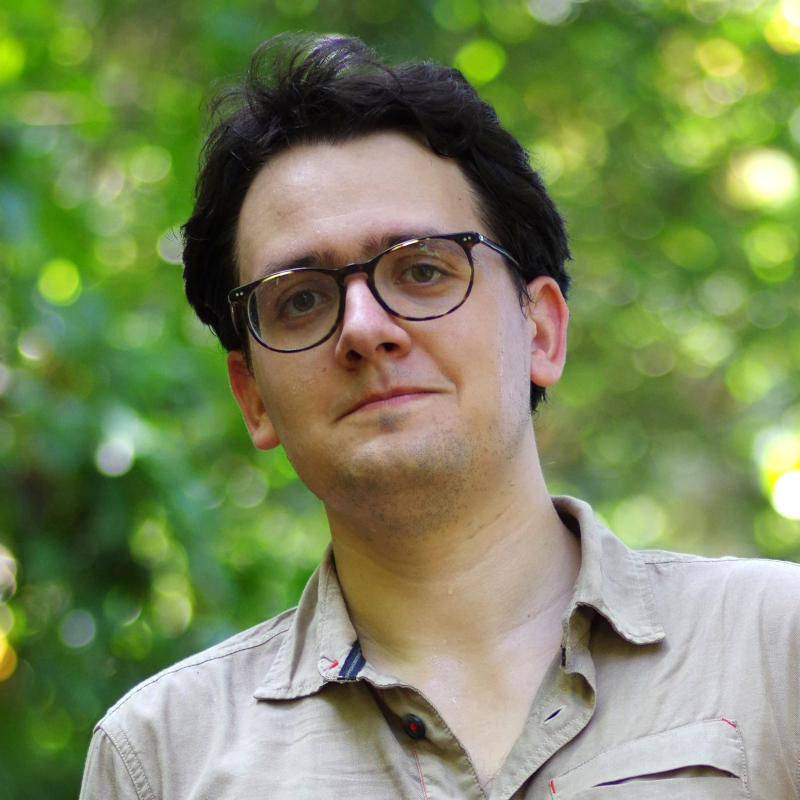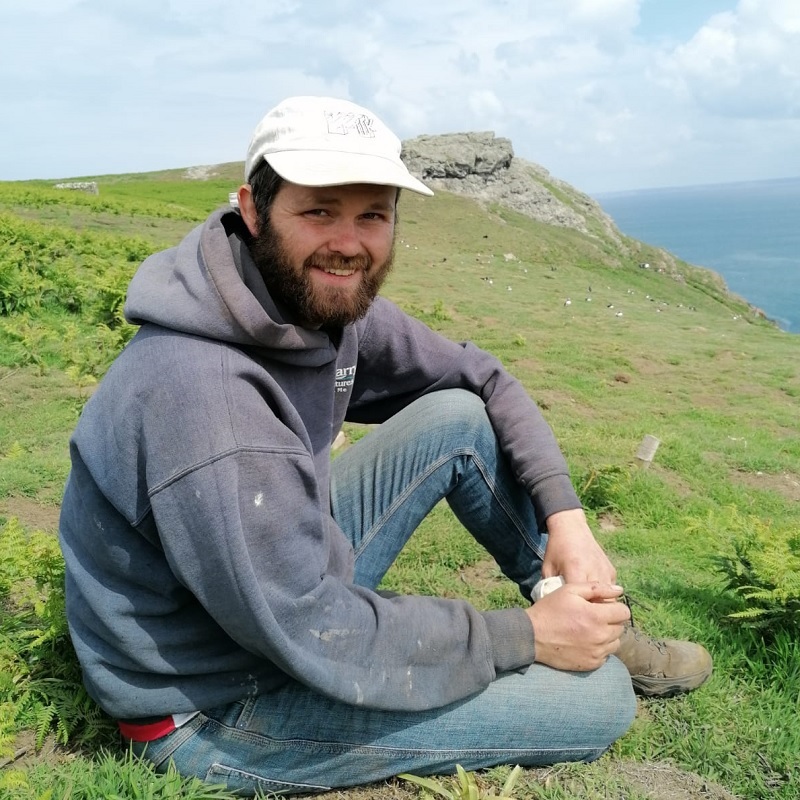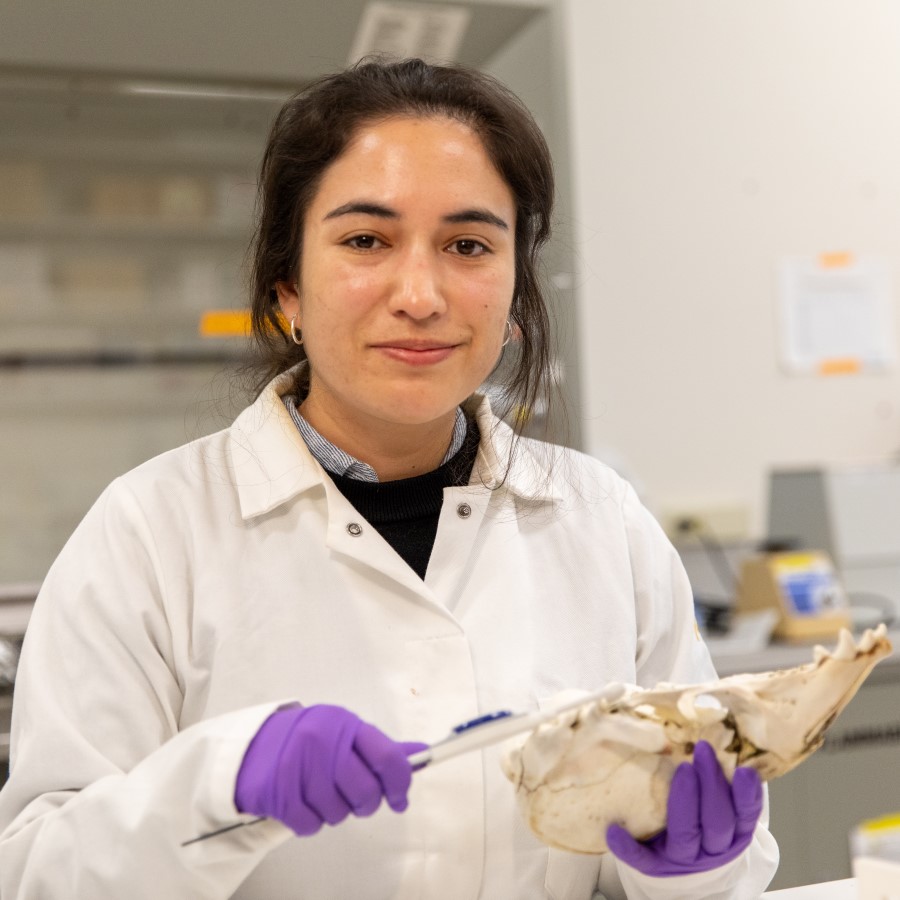We speak to Daniel J. Leybourne, runner-up of the 2024 Biology Letters Early Career Researcher Competition for the research paper Genetic diversity in vector populations influences the transmission efficiency of an important plant virus.

Tell us about yourself and your research article
I’m a Research Fellow based in the Department of Evolution, Ecology and Behaviour at the University of Liverpool where I study vector-virus-crop interactions. My research is currently funded by a fellowship provided by The Royal Commission for the Exhibition of 1851, and this article presents the initial findings from this Fellowship. In agriculture, we often assume that all vectors present the same disease transmission risk, irrespective of vector species or potential diversity within a species. I’ve always thought this is a rather naïve way of considering quite complex systems, especially as different species and populations within a species have variable phenotypes when it comes to vector behaviour and life-history traits. In this article we consider this diversity and look at the consequences of this for disease transmission, finding that genetic diversity underpins transmission efficiency.

Did you expect to be a finalist in our inaugural competition? And do you recommend that other early career researchers enter this year’s competition?
I really didn’t! I only entered last minute when I saw it as an option when submitting the manuscript, but I’m delighted that others found the work to be of interest. I’d definitely recommend other ECRs who are eligible to enter the competition – shy bairns get nowt.
What’s next for you and your work?
Next-steps are to look at the interactions within this vector-virus-crop system in more detail. I’m currently generating data for additional vector populations, including for a new third vector species and additional virus species. The core objectives remain the same, to determine how genetic diversity and association with microbial partners influences virus transmission, and I am also looking at unravelling the mechanistic processes too by monitoring vector feeding behaviour and plant and vector gene expression. Hopefully this will provide some additional insight into the processes that underpin variation in transmission efficiency. I have also been working with biological modellers to develop tools we can use to predict vector dispersal and disease transmission, and with students to look into sustainable methods of vector and disease control. So lots of exciting projects ongoing!
And finally, do you have any advice for upcoming generations of scientists in your field?
As advice is linked to an individual’s lived experience, it can be quite abstract and subjective. So I’m not really sure I have the best advice to give. However, some key points I would encourage all ECRs to think about and consider are:
- Don’t forget that you need time to think and generate ideas, and when it comes to writing papers you need to make time to think about your findings in a wider context – get out of the office and sit in a café or somewhere different with your key graphs/findings and a notebook to sketch out the key messaging and framing of the paper. Doing this can also help identify that next experiment or the next project.
- Try to think ahead, what are you wanting to do, or where are you wanting to be, in the next two, three, four years. What can you do now that will help you. Good supervisors and line-managers should also be helping you to continue to develop professionally – if you are a PhD student is there an up-and-coming skill/technique you can learn? if you are a PDRA can you get some teaching experience?
- If you have ideas for small side projects, apply for pump-prime funding.
- Take risks, believe in yourself and your ideas, and reach out to potential collaborators. I’m only where I am now as I sent a cold email to a researcher in Germany with some initial ideas for a project idea for a Humboldt Fellowship.
- Collaborate where possible and build up a network as soon as you can.
- Lastly, and most importantly. Make time for yourself and don’t let your work life overtake your personal life
The 2025 competition is now open and will run until Wednesday 30 April. Please see our terms and conditions before entering or contact the editorial office with your questions.
Image credits: portion of figure 1 from Leybourne et al. 2024; photograph of Daniel Leybourne.




